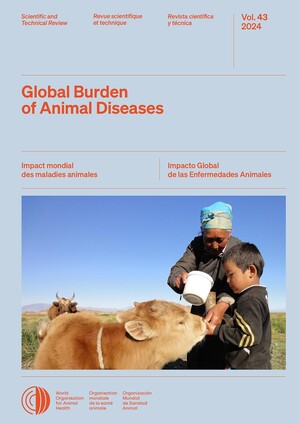
Sero-prevalence of West Nile virus in urban and peri-urban poultry farms of Guwahati, India
Abstract
West Nile virus (WNV) is a zoonotic, emerging mosquito-borne virus which can cause severe disease in the form of encephalitis and acute flaccid paralysis in humans. In Assam, northeast India, arboviruses seem to be re-emerging, however, WNV has been little studied. The present investigation was carried out from April, 2018 to March, 2019 to study sero-positivity of WNV in chicken in urban and peri-urban areas of Guwahati, the capital city of Assam. Four urban and four peri-urban areas of Guwahati were selected. A total of 864 chicken serum samples (72 samples per month) were screened by ELISA and further confirmed by haemagglutination inhibition (HI), which revealed that 3.13% of the chickens had been exposed to WNV, with 0.69% sero-positivity in urban areas compared to 5.56% in peri-urban. Peak sero-prevalence of WNV were reported during the month of July and August with 8.33% each with lowest sero-prevalence being recorded in November (1.39%) and no sero-positive birds from December to April. These results indicate that WNV is one of the actively circulating flaviviruses in Assam, and human febrile and encephalitic cases should be screened for the disease.
Citation
Talukdar, A., Hazarika, R.A., Bora, D.P., Pegu, S.R., Talukdar, P., Kader, N.A., Mohakud, S.S., Deka, N.J. and Lindahl, J.F. 2022. Sero-prevalence of West Nile virus in urban and peri-urban poultry farms of Guwahati, India. Frontiers in Tropical Diseases 3: 792857.









